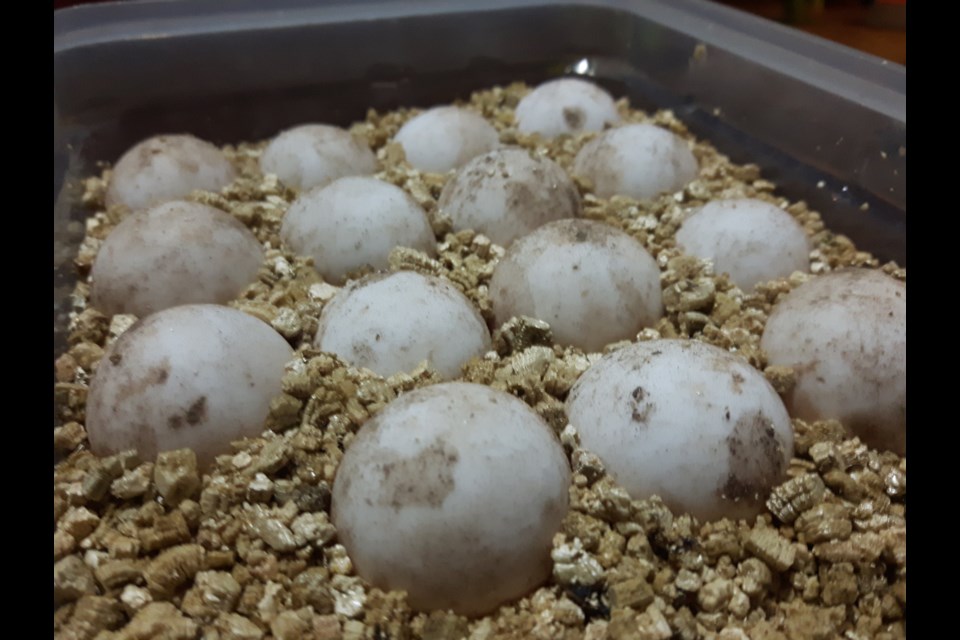It’s been a hot and humid turtle season, and once again, conservation technicians worked around the clock to save turtle eggs around Wellington County and Waterloo Region.
Conservation technician Sarah Marshall and assistant technician Logan Mercier from Cambridge's rare Charitable Research Reserve collected 2,002 eggs from 74 nests with 500 of them from Guelph.
The charity has been working cooperatively with the City of Guelph.
“We got permission to collect one last nest and it pushed us two over,” said Marshall about rare’s capacity to hold only 2,000 eggs due to limited incubators and staff to care for the eggs.
Out of the 2,002 eggs collected, 1,989 were snapping turtle eggs and 13 were painted turtle eggs. The hatchlings are expected to be returned to the area they were picked up late August.
Marshall said while they didn’t collect nearly as many eggs as they collected in Guelph last year, most of the protective cages are in Guelph.
Out of the 42 nests still out there with protective cages on them, 33 of them are in Guelph.
“A lot of that is because many of the nests we get within the city of Guelph are in areas we would deem low to medium risk,” said Marshall about areas such as parks, trails, ponds and even people’s backyards.
She said because of limited staff, the team does not actively survey for eggs but rather, only responds to hotline calls from residents.
“We don’t have the funding or the staff power to drive around for hours,” said Marshall.
Last year, she said the team was able to extract more eggs in Guelph because they appeared in many parks where sports were being played and residents reported eggs. This year, the pandemic kept parks low risk.
“This year we’ve been able to leave a lot of nests that would have excavated last year,” said Marshall.
She said rare prioritizes eggs in high-risk areas such as highways and roads and construction areas.
“The cages are nice because we don’t have to release the hatchlings. They are already in the area that they need to be in,” said Marshall.
She said the cages were largely donated by community members and families of rare site staff members.
Marshall said COVID-19 definitely brought some challenges.
“This year, maintaining social distance with residents while excavating was a challenge as they expressed a lot of excitement over the turtles,” said Marshall.
“We’ve been diligent about wearing masks and trying to encourage people to keep their social distance while were excavating.”
Marshall said the most important thing for her during this project was to raise awareness and get people thinking about how urban spaces affect the wildlife that lives in them.
“As a biologist, I can harp on forever about how I want to see change, how I want to see more environmental things happening, how I want to see culverts under roads that turtles can use, how I wanna see fencing and you know ecologically friendly storm management and all that stuff but its really getting a bunch of voices from a lot of residents that really make that change,” said Marshall.
She said the team is discussing the possibility of holding a virtual hatchling release event where residents can tune in and see hatchlings released back into the wild from a safe distance.
“If we could live stream a release, that might be a good way to get the community involved.”
